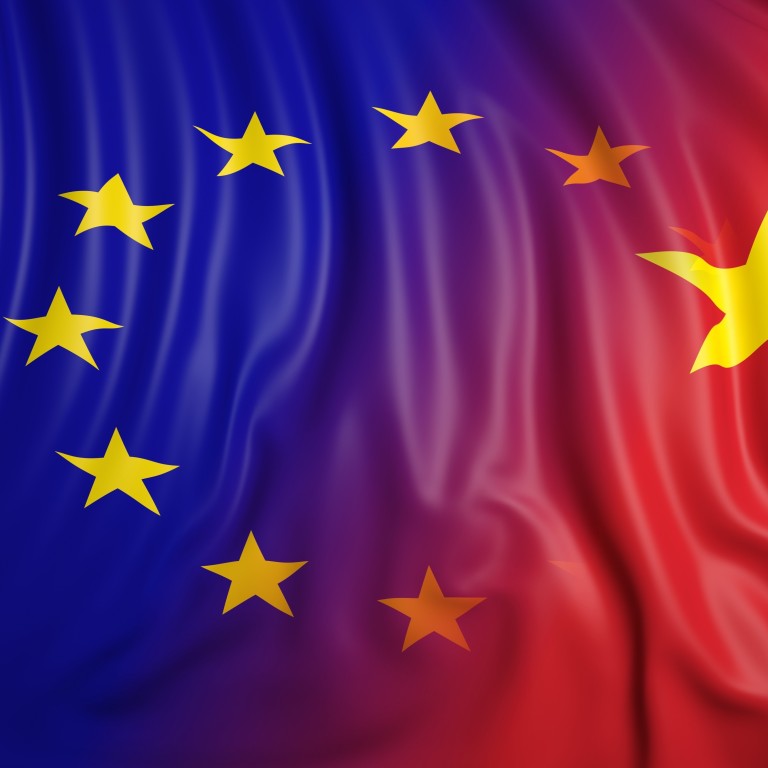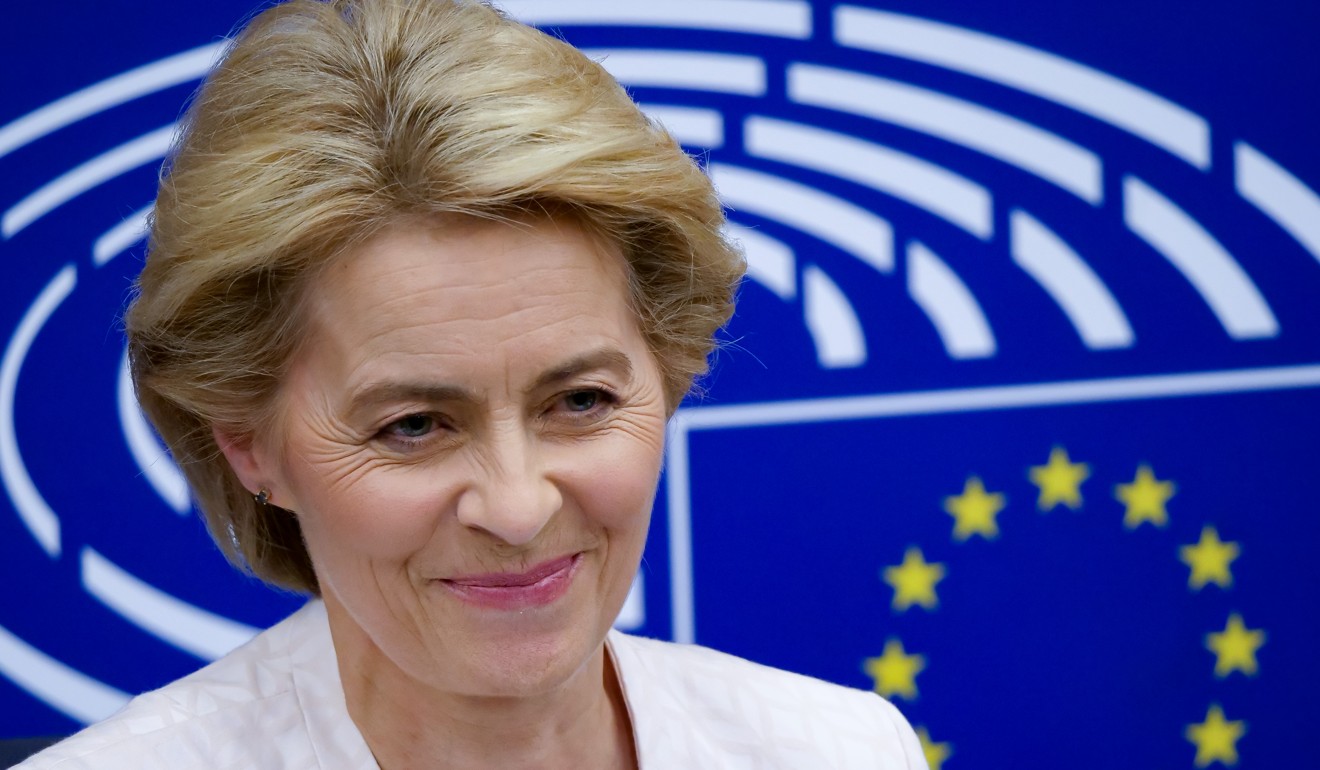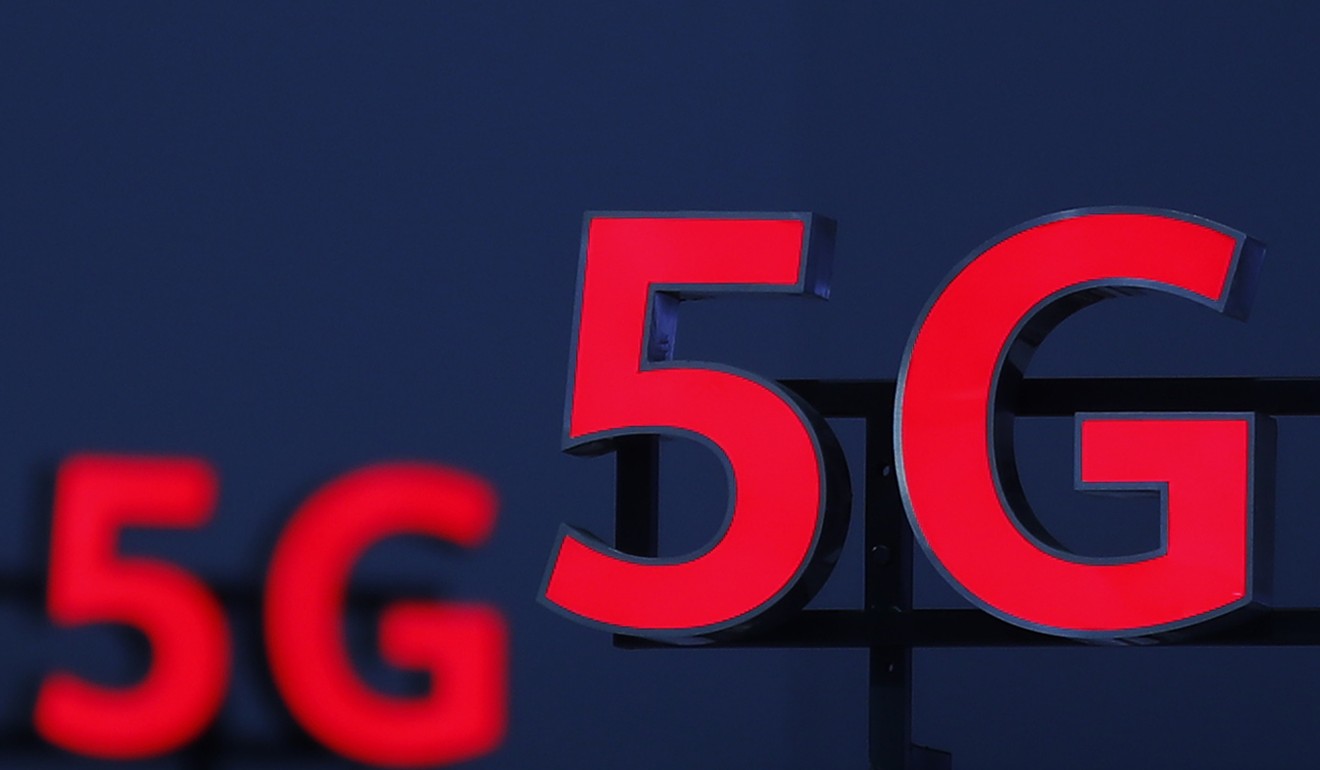
Why China senses strategic advantage in its ‘new historical starting point’ with Europe
- Mathieu Duchâtel writes that Beijing thinks the moment to push the transatlantic alliance may be at hand as trade ties between the EU and the US may be tested in 2020.
In Madrid and in Brussels this month, Chinese Foreign Minister Wang Yi characterised EU-China relations as standing at a “new historical starting point”. He added that for China, supporting European unity and prosperity was a “strategic choice” given the absence of “geopolitical contradictions” and “conflicts of interest”.
This is not exactly new language, except for the “new historical starting point”, which suggests great ambitions for breakthroughs between the EU and China in 2020.
It is understandable that China senses an opportunity. The EU could be the next target of a United States effort to replace multilateral trade rules with managed trade – using US influence to impose deals that reduce the American trade deficit (US$109 billion with Europe in 2018). And there are transatlantic disagreements over climate change, Iran policy, the future of Nato and more.
There is, however, strong and mutually reinforcing convergence across the Atlantic on many aspects of policy towards China, but it is not total convergence – loopholes exist, and no one can predict with certainty the effects on Europe-China relations of an American trade offensive against Europe in 2020. In addition, a new European Commission is in place in Brussels and it is time to test it.
Weakening the transatlantic alliance is in China’s strategic interest. Beijing seeks to prevent joint action on priorities such as access to foreign technology, the promotion of democratic values, and the question of Huawei’s participation in the construction of 5G infrastructure in Europe.

On technology transfers, transatlantic convergence – and coordination between the United States, Japan and the European Union – is a given, but Europe remains overall much less strict than the US and Japan.
The EU’s investment screening mechanism will only be implemented at the end of 2020. Despite the immense progress it represents for the defence of collective European interests, it does not stand comparison with the strong firepower of the American executive branch or the Japanese system. And by contrast with the US and Japan, as a matter of principle, Europe remains reluctant to control the education and research exchanges that lead to intangible technology transfers, sometimes to military end users. Therefore, China should be expected to look for loopholes during the period when the European screening “toolbox” is under construction.
And China is seeking a “new historical starting point” in the area of Europe’s promotion of democratic values. In October 2019, the Chinese embassy in Paris issued a communique criticising France after the French foreign ministry publicly supported a moderate and diplomatic EU statement that stressed “restraint, de-escalation and dialogue” as “the only way forward” in Hong Kong.
By contrast, the Chinese communique used unusually strident language such as “deep contempt” and “hypocrisy” and denounced a “criminal and dangerous” attitude towards Hong Kong. This left many observers with a sense of overreaction.
EU’s China point man urges Hong Kong and Beijing leaders to listen after ‘powerful signal’ of elections
In November, the focus of China’s anger shifted to the access given in Europe to Joshua Wong Chi-fung, the student leader of Demosisto and its advocacy of self-determination and democracy for Hong Kong. Wong’s videoconference with the Italian parliament led the Chinese foreign ministry to accuse Italian parliamentarians of “irresponsible conduct”. In response, the Italian foreign ministry denounced Beijing’s “excessive interference” and a lack of respect for the sovereignty of the Italian parliament.
What should we make of this? China is willing to risk alienating European public opinion to win European silence on developments in Hong Kong. This exposes Chinese foreign policy to renewed accusations that it works against freedom of speech and interferes in the functioning of sovereign democracies.
This approach is costly. In Sweden and in the Czech Republic, it has already proven counterproductive. But China may eye a long-term overall deterrent effect, whatever the cost. The immediate effect, though, is to draw attention in Europe to the question of how to address Chinese influence and the issue of values in EU-China relations.

Where China may expect some wins in Europe in 2020 is in the area of 5G infrastructure. Huawei has signed 20 commercial contracts with European operators. Before the end of the year, the EU will unveil its toolbox of defensive measures for member states to use as a template to create or amend their security legislation regarding 5G networks. The key question is how the notion of “trusted vendor” will be defined – in technical terms only, or in political terms, too.
Regardless of the constraints in the EU toolbox, Huawei is building part of Europe’s 5G infrastructure. Even with a tough definition of “trusted vendor”, it is unlikely that all member states will legislate and impose penalties on operators that have already signed with Huawei.
As a result, Europe will be divided, with possibly serious consequences that a major US-China crisis might reveal.
Next year is therefore the showdown moment for Huawei in Europe. This explains the intense lobbying, making full use of Chinese resources, including diplomatic ones.
Intimidation is part of the game, as shown by the defamation suit by Huawei against French author and Asia analyst Valerie Niquet and the production team behind a television politics show after she characterised Huawei as controlled by the Chinese Communist Party and conducting espionage against the West.
Reports have emerged in Denmark that the Chinese ambassador threatened the Faroe Islands’ prime minister with cancellation of a free-trade agreement in case Huawei was rejected in the archipelago.
China quick to call Europe a partner – but talks on investment agreement ‘moving at snail’s pace’
From Germany, where an intense 5G debate is taking place, persistent rumours suggest that Chinese diplomacy threatens consequences for the car industry – a major prospective consumer of 5G infrastructure. China is using its influence and power politics to defend the interests of its national champion, and the strategic stakes of having a firm foothold in Europe’s critical infrastructure are clearly part of Beijing’s rationale.
China is forcing its way towards this “new historical starting point”. The current moment seems unusually favourable – a new commission in Brussels to test, a phase one trade deal to be signed in January with US, a presidential campaign there that promises to consume American energies, and questions regarding transatlantic relations.
Can China seize the momentum? In fact, the only gains that China can realistically achieve would be through exploiting and exacerbating disagreements within Europe.
Beijing is working to create the conditions for a Europe divided on Huawei, to maintain access to technology despite the irreversible trend towards stricter controls, and to neutralise Europe’s promotion of democratic values – or at least moving towards an EU-China partnership where systemic rivalry is ignored.
This objective goes against the defensive China policy trends in Europe. It will not be achieved fully, but it could be partially achieved if the new European Commission lacks vigilance or if the US conducts its Europe policy at the expense of transatlantic convergence on China.
Mathieu Duchâtel is director of the Asia programme at Institut Montaigne
